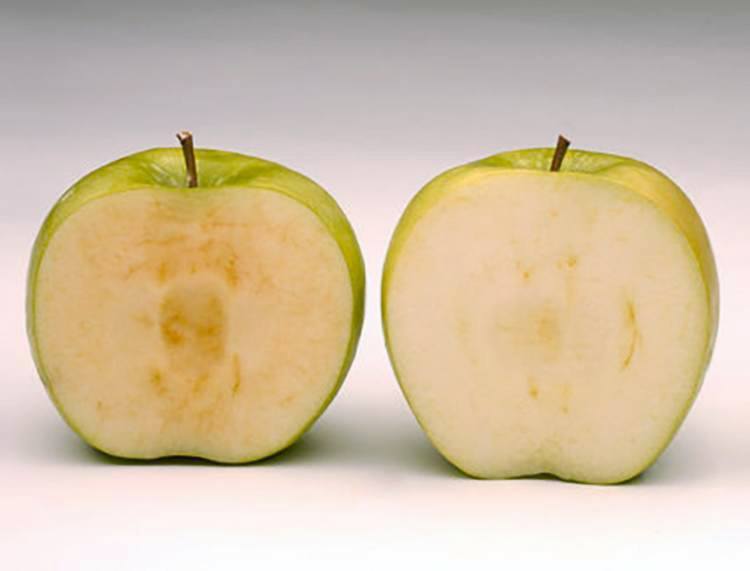There is a bigger battle taking place in our communities and individual lives. The movement is away from a food industry that knowingly uses toxic ingredients and known cancer carcinogens. A moral and ethical struggle has started to materialize. The winners will be the growers and companies who rapidly adhere to moral and ethical principles of truth, transparency, and The People’s voice. With regulatory agencies asleep at the wheel, blinded by conflict of interest and drunk from greed, the responsibility rests on the individual to pressure corporations through creative means. As the public is beginning to witness, their voice counts; not tomorrow, not in 2018, but in this moment.
Having a front row seat to watch McDonald’s slow and painful corporate public death, Wendy’s appears to have made the right chess move in a high stakes environment. The fast-food chain has publicly confirmed that they will not sell the newly released Arctic apple, which is a trademarked and patented piece of nature owned by synthetic biology company Intrexon. The Food and Drug Administration recently anointed the new apple as safe for consumption, relying only on company data through a voluntary safety consultation. The FDA’s apple (and potato) approval willfully ignored proper research ethics and legions of prior medical and scientific research proving harm.
“Wendy’s is wisely listening to its customers by joining other major food companies and apple growers in rejecting this unnecessary and risky genetically engineered apple,” said Lisa Archer, food and technology program director at Friends of the Earth. “It’s becoming increasingly clear that there is no demand for this new GMO.” Wendy’s joins McDonald’s, Gerber, and many apple growing associations in renouncing the trademarked, poorly researched, patented apple.
Fast food chains are struggling to keep up with consumer actions and demands upon their old, flawed, and dangerous business model. Food chains such as Whole Foods have pacified the public for now by making modest moves towards an eventual GMO free future (2018?). Yet is it enough? When smaller food retailers, individually owned grocers, and small farms can satisfy the people’s needs for GMO free and agrochemical free foods, does a bulky corporation with a complicated supply chain have a place in the future of our food? We find ourselves in a time of rapid information dissemination. Major medical findings and research is now being regularly released concerning our food supply that needs to be addressed today. Perhaps those corporations unwilling to live in this new world of rapid change and high stakes toxicity need to get out of the way for younger, faster, and more empathetic newcomers.
“Your old road is rapidly agin'
Please get out of the new one
If you can't lend your hand
For the times they are a-changin’"
-Bob Dylan
Having a front row seat to watch McDonald’s slow and painful corporate public death, Wendy’s appears to have made the right chess move in a high stakes environment. The fast-food chain has publicly confirmed that they will not sell the newly released Arctic apple, which is a trademarked and patented piece of nature owned by synthetic biology company Intrexon. The Food and Drug Administration recently anointed the new apple as safe for consumption, relying only on company data through a voluntary safety consultation. The FDA’s apple (and potato) approval willfully ignored proper research ethics and legions of prior medical and scientific research proving harm.
“Wendy’s is wisely listening to its customers by joining other major food companies and apple growers in rejecting this unnecessary and risky genetically engineered apple,” said Lisa Archer, food and technology program director at Friends of the Earth. “It’s becoming increasingly clear that there is no demand for this new GMO.” Wendy’s joins McDonald’s, Gerber, and many apple growing associations in renouncing the trademarked, poorly researched, patented apple.
Fast food chains are struggling to keep up with consumer actions and demands upon their old, flawed, and dangerous business model. Food chains such as Whole Foods have pacified the public for now by making modest moves towards an eventual GMO free future (2018?). Yet is it enough? When smaller food retailers, individually owned grocers, and small farms can satisfy the people’s needs for GMO free and agrochemical free foods, does a bulky corporation with a complicated supply chain have a place in the future of our food? We find ourselves in a time of rapid information dissemination. Major medical findings and research is now being regularly released concerning our food supply that needs to be addressed today. Perhaps those corporations unwilling to live in this new world of rapid change and high stakes toxicity need to get out of the way for younger, faster, and more empathetic newcomers.
“Your old road is rapidly agin'
Please get out of the new one
If you can't lend your hand
For the times they are a-changin’"
-Bob Dylan







 RSS Feed
RSS Feed